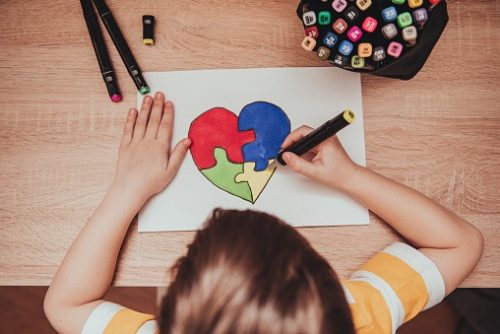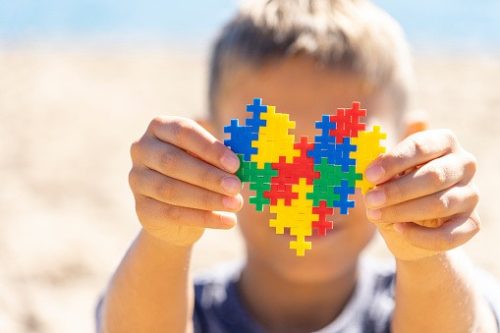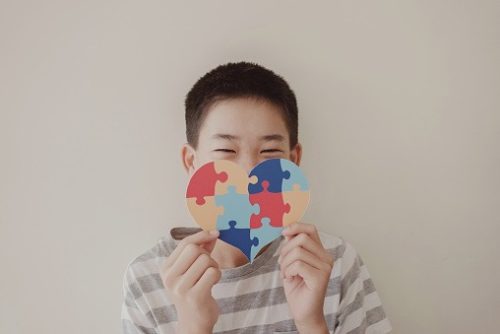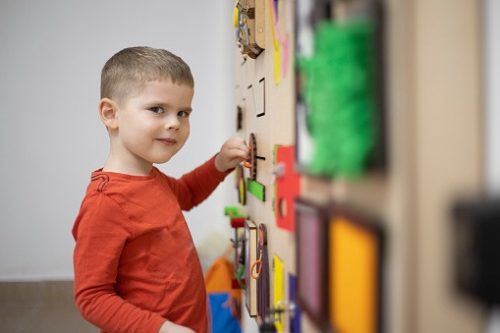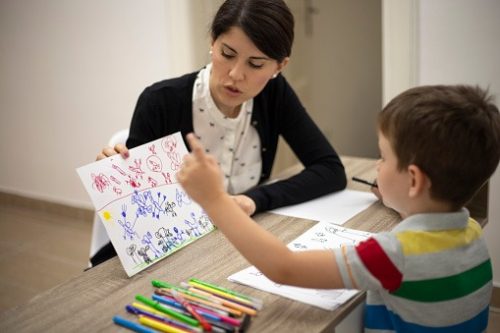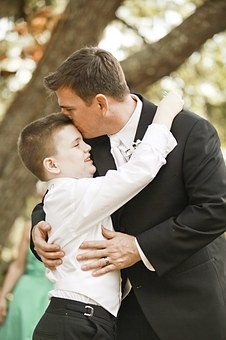Everybody has uniqueness. However, even though you were never diagnosed with autism spectrum disorder (ASD as a child), you may assume that you have the condition if you’ve discovered that your way of thinking, emotions, or desired behavior isn’t entirely normal. You may appear like the people around you regarding body language and sign language, interpersonal abilities, actions, habits, or general preferences. Or you may see the same way that problems affect your behavior.

The concept of neurodiversity, that some persons have cognitive variances and that such variations should be cherished rather than “corrected,” has gained popularity over the past few decades. Even so, receiving an adult autism diagnosis might be unwelcome news. You might even feel anxious or in disbelief about the diagnosis. However, an official diagnosis can be relieving if you’ve long believed that you have autism spectrum disorder or another illness that makes you different from other people your age. You might see that you have clarity; many of your previous encounters and experiences make sense.
Remember that you have individual talents and limitations, just like everyone, regardless of how a medical diagnosis or assessment makes you feel. You can always go further in your personal development to better understand your own ideas and actions.
Even if you limit the diagnosis to “high functioning” autism, there is still a large spectrum of symptoms associated with autism. Adults with autism typically exhibit symptoms primarily in their conversational skills, interests, emotional and personality traits, and hypersensitivity to touch and noise.
Nonverbal Cues And Symptoms Of Autism In Adults
Narrow Interests
Everybody is interested in different things. However, adults with ASD frequently narrow their interests to one or two very exciting topics. For example, you may know everything there is to know about a significant incident in history or television series. You may occasionally appear “in your own world” and incapable of hearing others around you. Any deviation from your usual behavior can make you act emotionally, as you frequently give off the impression of being aloof and uninterested in anything.
Although it’s often fascinating to others, it could make you feel like you can only add so much to discussions outside your areas of expertise. Connecting and communicating with others who don’t share your interests is difficult or tiresome. It may even cause you to shy away from social situations in different settings.

Repetitive Behavior
Autism speaks out symptoms, but you can feel safer and in control of your life if you stick to a routine or keep things tidy. Fixing sleep disturbances, learning new skills, and working on the best of your day to day life. When your usual routine and practices are disturbed, such as when you have to take a different way to go to work or when someone moves your items, which are now out of place, you could feel uncomfortable. Your level of upset or unhappiness could lead to an intense emotional outburst, like rage.
“Lower-order” motor repetitions include self-stimulation, shaking hands, twirling, repetitive phrase repetition, object manipulation, toy banging, and button pushing. Frequently, self-stimulation is one of the main causes of repetitive behavior. A certain setting, sound, or circumstance may overwhelm and intimidate you if you have sensory problems, making it tough to handle.
Problems With Communication
You may find it challenging to understand social signals if you are an adult with communication issues or, specifically with ASD. Because of this, it might be challenging to carry on back-and-forth talks or discern another person’s emotions. It can include anything from their tone of voice to how they make gestures or facial expressions. You may particularly find it difficult to spot figures of speech and sarcasm.
It might also be challenging for people to understand your feelings and thoughts if you speak in a deadpan or monotonous tone or produce a few facial gestures. Also, making eye contact could be another crucial social indicator you find difficult to use. Maybe someone has informed you that you gaze or look away from discussions too frequently or that you get frustrated by things like, for instance, making repetitive, involuntary noises in gatherings like clearing your throat.
Sensory Issues
With autism spectrum disorders, you may exhibit both hyper- and hyposensitivity (under-reactivity) to a variety of stimuli. Most people combine the two in some way. Hypersensitivity to brightly colored light or specific light wavelengths (e.g., fluorescent or LED) is also common. With ASD, you may find some feelings intolerable. If somebody touches or taps your arm, you can get hurt. For instance, some sounds, odors, or textures could cause an uncomfortable pivotal response treatment. In certain situations, you could use every effort to prevent such discomfort.
It might be challenging for you as an autistic person to organize and comprehend information from your senses of touch, taste, and hearing, smell. High levels of stress and anxiety and even painful or frightening sensory experiences can result in meltdowns. That explains why most experts recommend you to always see yourself stay relaxed.
Difficulty Regulating Basic Emotions
Finding a space where you may practice emotional regulation is half the battle for an autistic person like you. Such actions frequently attract notice, inquiries, remarks, and much misunderstanding. It might be difficult for you to recognize, comprehend, and describe their feelings. Additionally, you could find it difficult to express or feel reactions deemed suitable in social situations, like excitement on a happy occasion.
Others may struggle with problem-solving because of rigid thinking. If the initial strategy needs to be changed, this may make it challenging for some autistic people to come up with a fresh one, which can heighten tension and worry. Recognize the unique effects that autism has on you or every other individual. Genetics, personality, upbringing, and external circumstances such as hunger or fatigue are the main determinants of an individual’s capacity to control negative emotions.
Types Of Therapy For Autism
Several autism therapies are available to help children and adults with autism. Individual recommendations for occupational therapy treatment may differ according to age, needs, personality, and skill level. Many physiological and mental health issues can coexist with autism. Collaboration between therapy providers and patients can be helpful in many of these cases.
Applied Behavior Analysis (ABA)
ABA, or Applied Behavior Analysis, is the most widely used psychotherapy for kids with autism. It uses relevant incentives, appropriate punishments, and positive behaviors reinforcement to help autistic youngsters acquire social and nonverbal skills, increase their language proficiency, and boost good behavior. It promotes enhanced social skills, more effective expression and receptive communication, collaboration with others, and decreased unacceptable conduct.
Relationship Development Intervention (RDI)
With the help of this early intensive behavioral intervention, autistic children learn how to develop relationships with their family members and other relatives. This family-centered therapy incorporates interpersonal, psychological, and adaptable thinking techniques. Additionally, since adjustments can be especially challenging, kids with ASD learn to handle difficulties. The Rehabilitation and Development Institute (RDI) program includes discrete trial training and a primary therapist’s help.

Equestrian Therapy
Equestrian therapy, sometimes called therapeutic horseback riding, gives autistic youngsters the chance to ride horses in a secure setting. Both the youngster and the horse are under the therapist’s care. Therapeutic horseback riding has been shown to lessen hyperactivity and irritation while enhancing social and communication skills. Riders with autism may concentrate, believe, and accept training when horses calm them. Individuals with ASD also seemed to have enhanced posture, stability, and core endurance after using it.
Play Therapy
Play therapy for autism is different from play therapy for other medical conditions. When it comes to autism therapy, professional therapists are significantly more prescribing than they are for anxiety, depression, and other mental health issues. Through play therapy, autistic children can learn how to communicate with others in a manner that makes sense to them—through play. Individuals with autism have different social behaviors from regular people. For instance, a person with autism may focus only on one feature of a toy and rarely play pretend.
Speech Therapy
Speech therapy may be helpful for those with autism, but it’s frequently not the best course of action for those with severe autism condition. Speech therapy may be most beneficial to higher functioning people and may help adults and children with ASD overcome social isolation. Sometimes, a combination of conditions necessitates speech autism treatment for an autistic person. In some cases, a therapy approach that addresses the illness itself, as well as autism, may be helpful.
Music Therapy
Music can help individuals who have autism become more engaged and attentive, even though they may have trouble focusing and paying attention to things that aren’t important to them. Listening to and connecting with others’ emotions can benefit those with autism. Music therapy promotes verbal behavior intervention communication or verbal skills and increases emotional intelligence through synchronized rhythm, collaborative attention, and motor imitation improvements. More research has shown that music can assist and treat autistic individuals in talking more fluently, developing greater creative and receptive communication abilities, and learning to identify objects in their surroundings.
Sensory Integration
The processing of sensory data can be impacted by autism, potentially leading to either excessive or insufficient stimulation of the senses. Unbelievably complex behaviors can be a result of sensory input. Through sensory integration, those with ASD may more effectively handle their sensory overload and take control of their sensory input. It is the method by which people arrange the information they get from their five senses, apply it to daily tasks, and utilize it to engage in them. There seem to be instances where this treatment plan or treatment goals can ease patients’ anxiety.
Cognitive-Behavioral Therapy (CBT)
In cognitive behavioral therapy (CBT), a popular kind of talk therapy, a psychological occupational therapist works with clients in a limited number of sessions that may last eight to twelve weeks, depending on the client’s needs. The cognitive method explains the capacity to create mental images of one’s own and other people’s inner emotional worlds. CBT helps people with autism to change their attitudes or actions to prevent unpleasant feelings. CBT consists of two primary components. People can alter their perspectives on situations and responses using the cognitive component.
Frequently Asked Questions (FAQs)
How Others Interactions With The Autistic Person Can Affect Them?
How Does Autism Affect Activities Of Daily Living?
How To Encourage An Autistic Individual When They Are Struggling?
How Do You Cope With Self Management Skills In Autism?
How positive behaviour can be encouraged using different approaches?
Can autistic people get better at social interaction?
What methods can be used to communicate with an autistic individual?
How does autism affect interpersonal relationships?
How autism can affect an individual’s acceptance of change?
Why individuals with autism find changes to routine distressing?
Do autistic people interact better with other autistic people?
Can autistic people communicate with each other?
How does autism affect communication in adults?
How do people with autism interact socially?
Why might autistic people benefit from having a routine?




